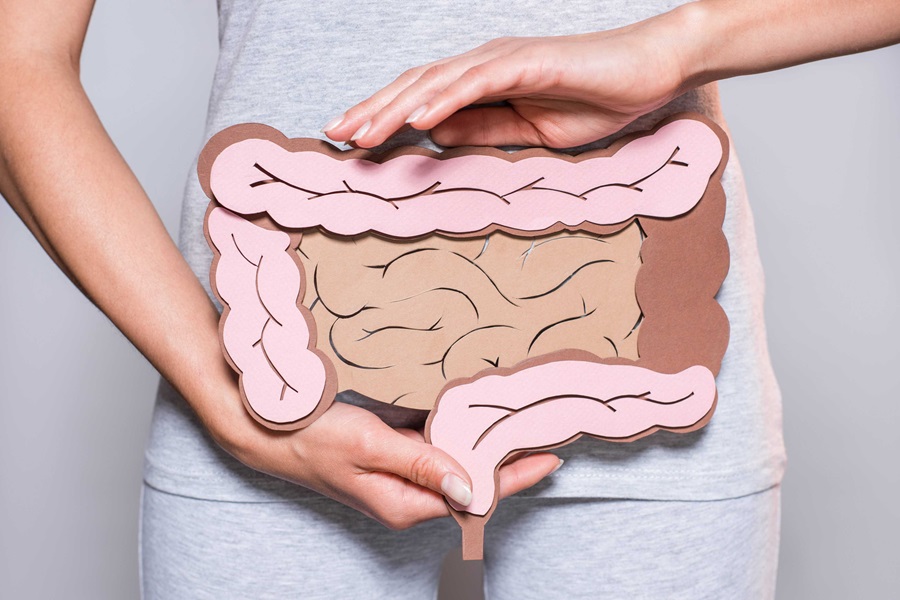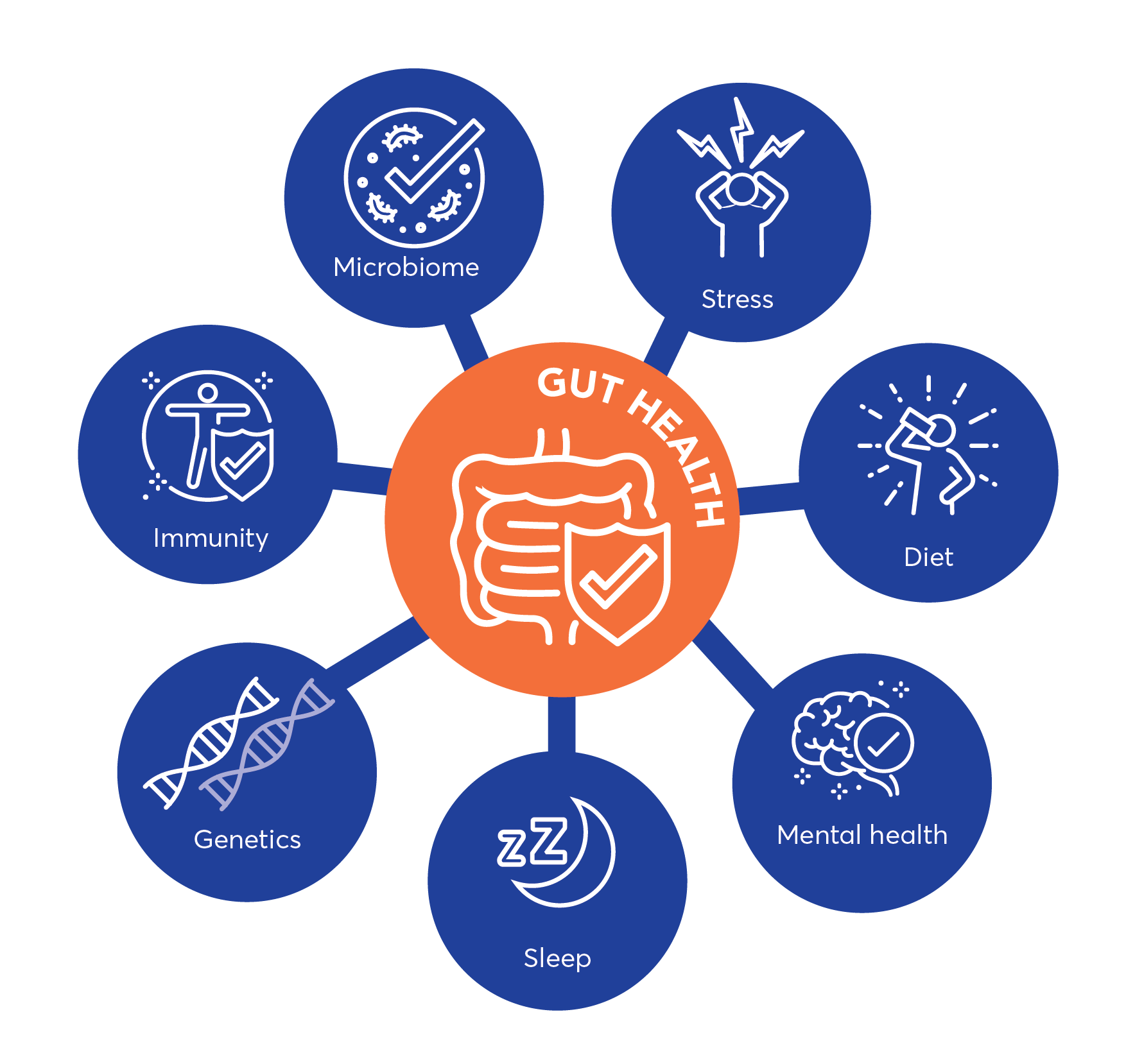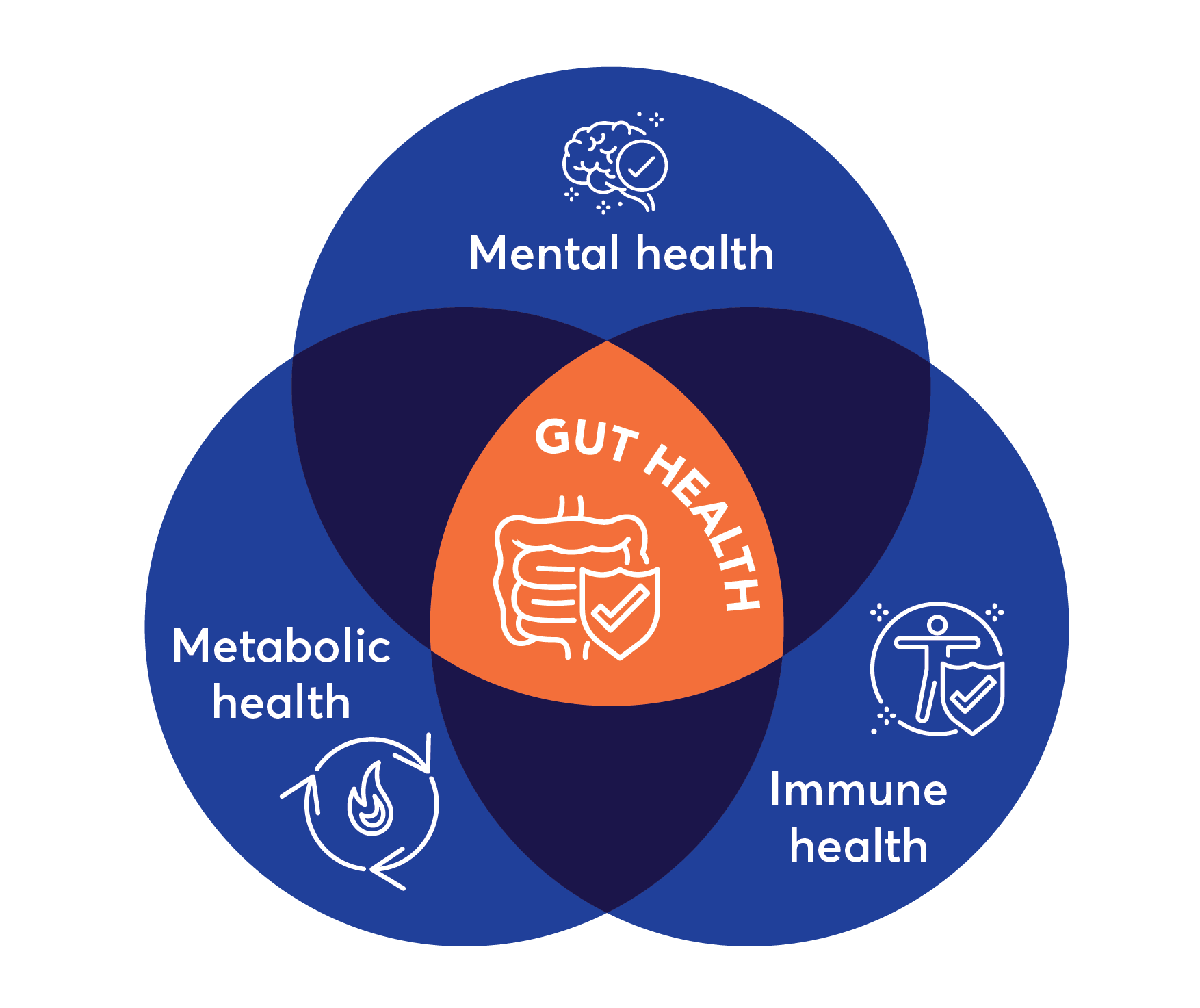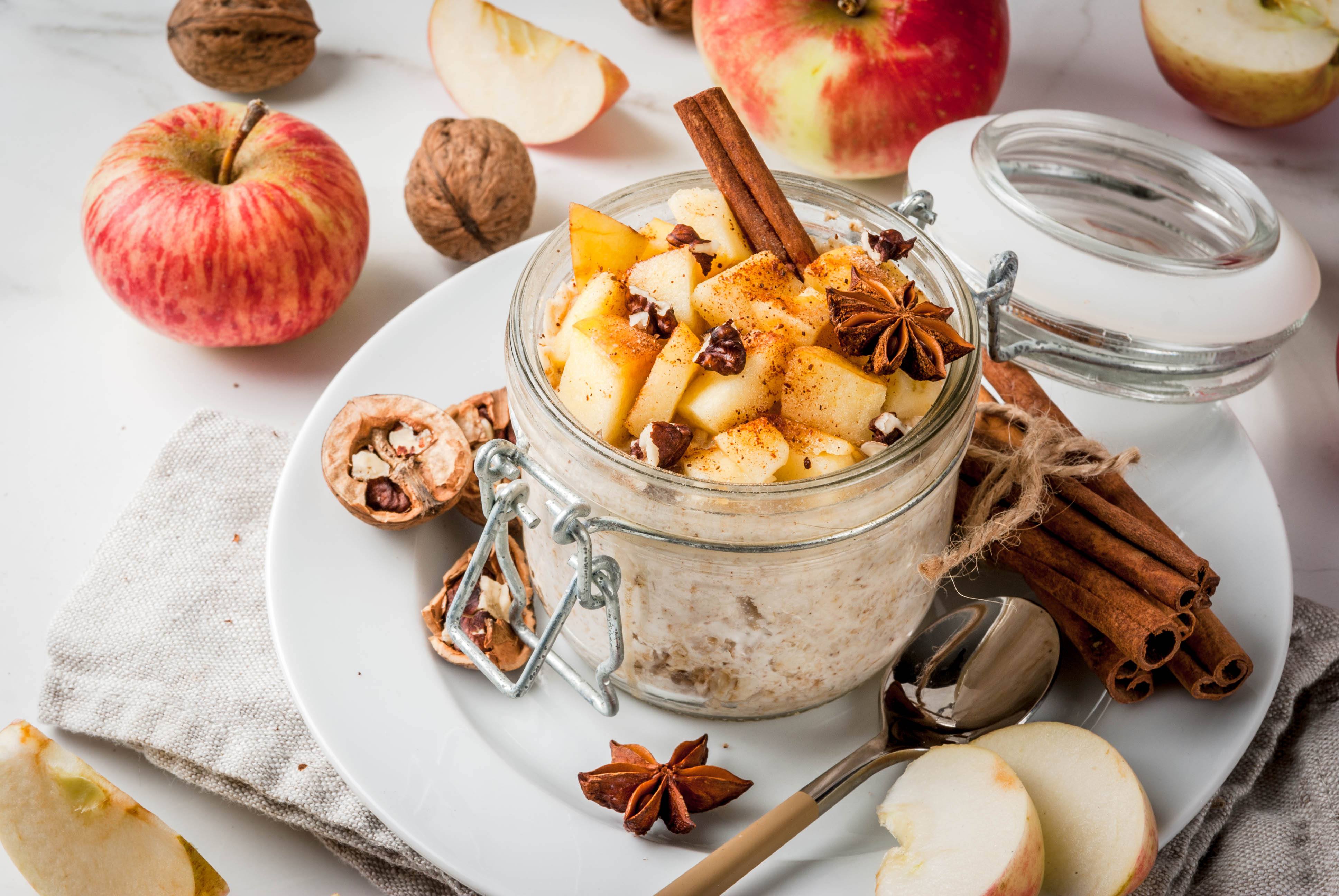- Home
- Mind & body
- You’ve got to love your gut, and here’s why
At CBHS we help you manage your health challenges. We believe in offering you the services, support and tools you need to live your best life.
Health and Wellness Programs are available to support eligible members towards a healthier lifestyle. Each Health and Wellness Program is subject to its own eligibility criteria.
Contact us for more information and to confirm your eligibility for a program.
You’ve got to love your gut, and here’s why

Your brain and your gut are two busy chatter birds, constantly talking to each other. They love talking about food (don’t we all) and what they say can have a direct effect on how you feel.
CBHS Wellness Consultant Stephanie Liang has dug into the detail behind gut health, and she’s come up with some fascinating facts.
Get to know your gut
Your ‘gut’ is actually a series of organs along a nine-metre long digestive tract. Your gut transforms everything you eat into nutrients and energy to keep you alive. When your gut has extracted all it can, it expels the waste products.
“Keep your gut happy and healthy and it will detox your body naturally.”
We are what we eat, right? Not quite. More specifically, we are what our bodies can absorb and digest from the food we eat. Our bodies can absorb more nutrients from well-digested food, so the more you chew, the better digested your food will be.
Billions of bacteria make up your microbiome
The billions of cells in your body are easily outnumbered by the number of microbes (or bacteria) that live on your skin, mouth, eyes and in your digestive tract. Invisible to the naked eye, those microbes can add up to an extra two kilos of bodyweight.
“…healthy dietary changes can improve the mental health of people with depression.”
Many of the microbes are useful, helping you digest food, boost immunity, and reduce inflammation. They can even help improve your mental health. The microbes in your gut are active, which means they can change, and you can influence those changes to help make you happier and healthier.
‘The SMILES trial at Deakin University showed that healthy dietary changes can improve the mental health of people with depression,’ says Stephanie.
Have you got a healthy gut?

These are some of the factors that can affect the health of your gut:
- diet
- water and alcohol intake
- type of delivery at birth
- feeding and exposure to medication in the first three years
- stress
- exercise
- sleep
- genetics
- medication
- stage of life
- comorbidities
- environmental exposure.
One of the biggest factors that can influence your gut health is your diet.
Why gut health matters

A healthy gut can help to:
- reduce the risk of depression and anxiety
- allow proper digestion and absorption of nutrients
- protect the lining of the digestive tract
- boost immunity
- reduce inflammation.
Depression and anxiety: Studies have shown that people with poor diets, and poor gut health, are at increased risk of depression and anxiety. Why? Because your gut talks to your brain. Your brain talks back, which is why your gut can start ‘churning’ and you might want to rush to the bathroom if you feel anxious or stressed.
Digestion and absorption: Gut bacteria play an important role in helping your body absorb nutrients and minerals; synthesising enzymes, vitamins, and amino acids; and producing short-chain fatty acids (SCFAs). These SCFAs provide energy for gut cells, to help keep your gut lining healthy and protect against pathogens.
Digestive tract lining: The lining of your gut prevents toxins or other harmful bacteria from reaching the tissue below. Bacteria produce metabolites, which act as fuel for the gut lining.
Immunity: Around 70% of your immune system is in the gut, which is why having a healthy gut can help your body fight infection.
Inflammation: If you don’t have enough ‘good’ bacteria in your gut, bad guys can take over. These so-called ‘bad’ bacteria make compounds that can cross your gut lining and cause inflammation through the body. This can exacerbate conditions such as asthma, allergies and conditions like irritable bowel disease.
You don’t need to detox
That’s right. You don’t necessarily need all those detox diets, fancy probiotics and expensive powders. Your gut (and your liver and kidneys) can do the job for you. Keep your gut happy and healthy with a largely plant-based diet, and it will detox your body naturally.
What’s the big deal about a plant-based diet?
In certain communities around the world people live exceptionally long, healthy lives. These people share common traits. As well as staying active and finding purpose in life, they eat largely plant-based diets, with little or no processed food, small amounts of red meat and only moderate intakes of alcohol.
You want me to eat my plants?
Woah, we don’t mean pot plants! We’re not just talking lettuce and leafy greens either. A plant-based diet can include anything edible that grows in the ground. Think oranges and lemons, apples and pears, peas and beans, potatoes, pulses, grains, herbs, spices – if it’s edible and it grows in the ground, you can add it to your diet.
You don’t have to become vegetarian
Eating a plant-based diet doesn’t mean turning vegetarian. It means reducing the amount of meat you eat and eating mainly plants. The more diversity you can get into a plant-based diet, the better.
The 30/30 rule
Your gut microbiome can change quickly in response to what you eat, starting just hours after you finish a meal.
Research has shown that eating 30 different plant foods each week, and 30g of fibre a day, can increase the diversity of your microbiome and improve the overall health of your gut. Plant foods contain plenty of fibre as well as antioxidants, vitamins and minerals, so they’re good for you in many ways.
Does 30 sound like a big number? You’d be surprised how quickly it can add up. Think in terms of a variety of fruit, vegetables, wholegrains, nuts, seeds, and legumes. They all count. And remember, a high intake of cakes, chips and deep-fried treats can feed the unhelpful bacteria in your gut and starve the helpful ones.
Tip: If your diet is low in fibre, a sudden increase can cause wind and bloating, so make gradual changes to prevent this, and drink plenty of water.
Give your gut a good start to the day
Try this super easy recipe for apple pie overnight oats. You’ll make a delicious breakfast in minutes and add six different plant foods to your weekly total. Mix it up with different fruits, seeds and nuts to boost your total even further.

Use your private health insurance
If you hold any level of CBHS Extras cover you can claim a benefit towards the cost of seeing a dietitian. You can also claim a benefit on most levels of packaged cover.
All information contained in this article is intended for general information purposes only. The information provided should not be relied upon as personal medical or financial advice and does not supersede or replace a consultation with a suitably qualified healthcare professional.
Sources:
Advanced nutrition and human metabolism, 6thed, Sareen S. Gropper, Jack L. Smith 2012
Gut Health: the secret to health and happiness. Dr Megan Rossi
http://dx.doi.org/10.1016/j.cell.2016.10.043
https://foodandmoodcentre.com.au/2018/10/gut-microbiota-and-diet-an-introduction/
https://www.sciencedaily.com/releases/2018/05/180515092931.htm
Gut Microbiome and Depression: How Microbes Affect the Way We Think (nih.gov)
Health and wellbeing
programs & support
You Belong to More with CBHS Hospital cover:
- Greater choice over your health options including who treats you
- Get care at home with Hospital Substitute Treatment program
- Free health and wellbeing programs to support your health challenges
Live your healthiest, happiest life with CBHS Extras cover:
- Benefits for proactive health checks e.g. bone density tests, eye screenings
- Keep up your care with telehealth and digital options
- Save on dental and optical with CBHS Choice Network providers
